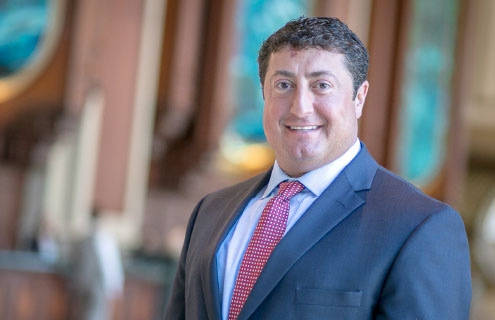As the captive insurance industry’s talent race heats up, CICA has made moves to lesson the blow as a generation of older professionals leave the industry
At times, the hurdles of the captive insurance industry’s talent diagnosis can cause an innate weariness for those in the industry.
It’s a topic that is discussed at nearly every single captive insurance focused event, and recent statistics show that there are expected to be 400,000 job openings in the insurance industry by 2020. While captive insurance takes a smaller portion of that pie, it is still concerning for the industry that such a shortage exists, with a solution as yet to apparate.
However, the fallout of the captive insurance industry’s ‘talent crisis’ (as it has been dubbed) is not a foregone conclusion and, in June, the Captive Insurance Companies Association (CICA) unveiled its young and new professionals task force—an attempt to encourage career development and networking opportunities for young people wishing to enter the captive industry.
The task force, ‘NEXTGen—young & new professionals’, will be comprised of captive owners, service providers and domicile members, who will meet for the first time over the summer.
As the first of its kind, the task force is one of CICA’s great strides in its commitment to developing the next generation of captive professionals.
CICA president Daniel Towle says he expects the advice of the task force to help the association in providing education and networking, including social networking, that young and new professionals need to advance their careers.
Towle adds that social networking “plays an important role” for today’s young insurance professionals. He explains that young professionals are using it as a tool to increase brand awareness, build relationships and more.
He states: “CICA has actively engaged young professionals in our social media initiatives and we expect the task force may recommend additional social media strategies to meet their needs.”
Considering a recent study from Gallup (among others), Towle notes that two of the top priorities for young professionals are professional development and coaching.
He remarks: “We do not want to lose young professionals to other industries because they are not being supported in their professional growth.”
With new risks to address, new technologies to improve how we do our jobs, and new ways of growing and marketing our businesses, the shape of the insurance industry is changing. We all need to be looking at what’s needed to support these changes and to retain captive industry professionals.
The task force will first meet this summer, with recommendations due to CICA in the autumn.
The importance of youth
Towle, who has been an authority on captive insurance since his appointment as director of financial services for the State of Vermont in 1999, was appointed president of CICA in 2017. Since then, he has been committed to furthering the goal of promoting young professionals in the captive insurance industry.
But Towle prefers not to call it a ‘talent crisis’; rather he sees the insurance industry as full of “talented professionals”—his aim, then, is to find a way to gravitate these talented professionals towards the captive insurance industry.
He explains: “Our industry is aging and as many senior level individuals retire, we need to encourage more young professionals to get involved. We need to help them prepare to become the next generation of captive leaders.”
Earlier this year, Towle spoke at Temple University—a major proponent of careers in the captive insurance industry.
Towle said the risk management and actuarial science students at the university were “interested and very engaged in learning about captive insurance”.
“It was also clear to me that we need to better formalise internships and job opportunities for college students if we want the captive industry to be able to compete with other insurance career options,” he added, “most of these students are securing jobs today through internship opportunities”.
Alongside speaking on and promoting young professionals in the industry, CICA offers a number of continually expanding professional development programmes, including its CICA Conference Professional Development Track, its mentorship programme and its recent student essay contest.
The association also has a number of partnerships with academic and credentialing organisations to help support students and seasoned professionals meet their education goals.
Towle has said that the response to these programmes has been “outstanding”, and the professional development track receives some of the association’s highest ratings.
He explained: “CICA is making a serious commitment to engaging young professionals in the captive industry, and we encourage individuals and associations to get involved. We all need to play a role in promoting the captive sector to the next generation.”
“Captive insurance is on the cutting edge of risk management and provides interesting and rewarding careers. It also offers stable and rewarding work.”





